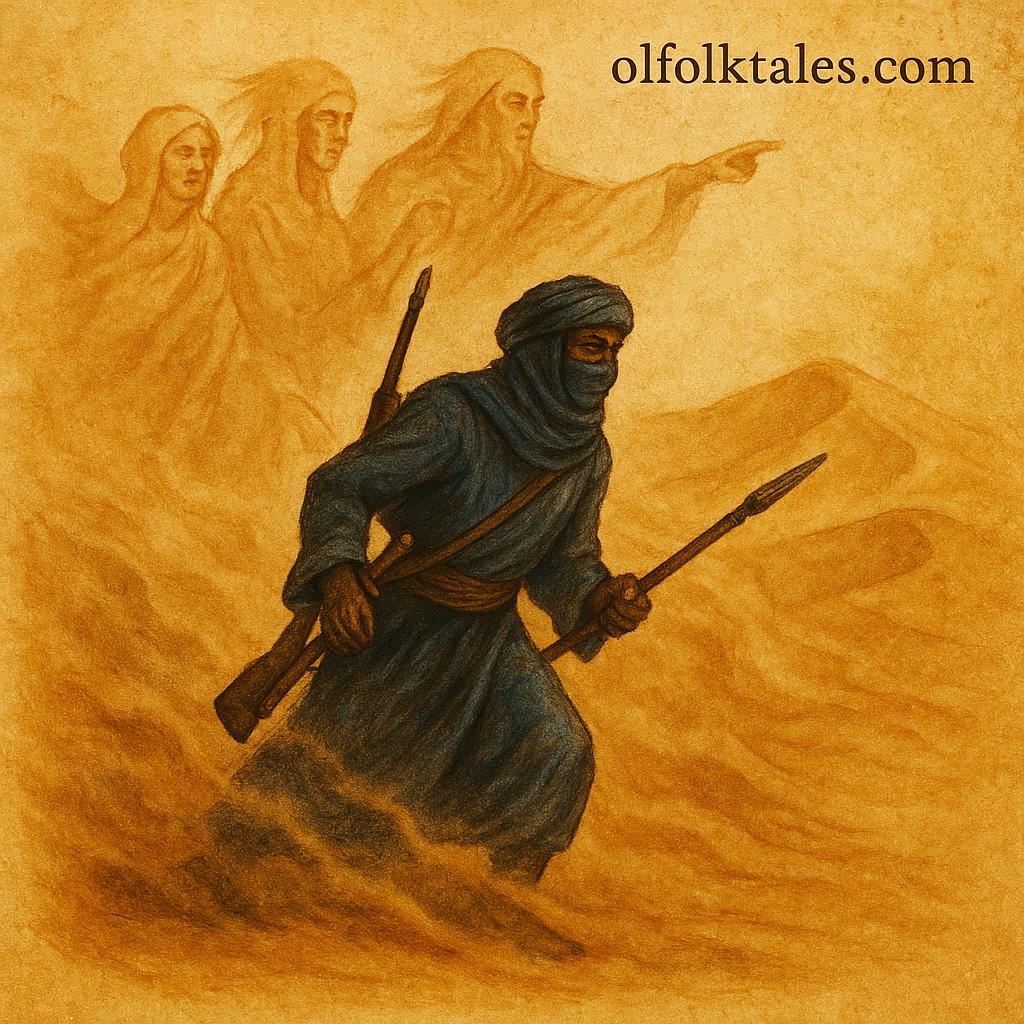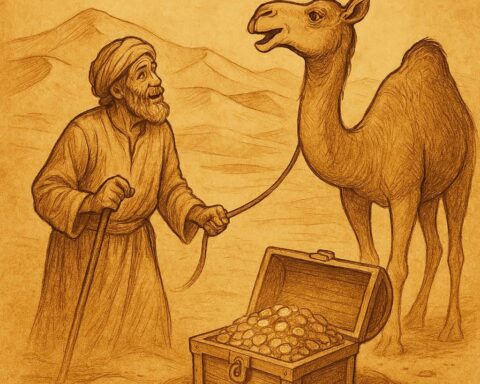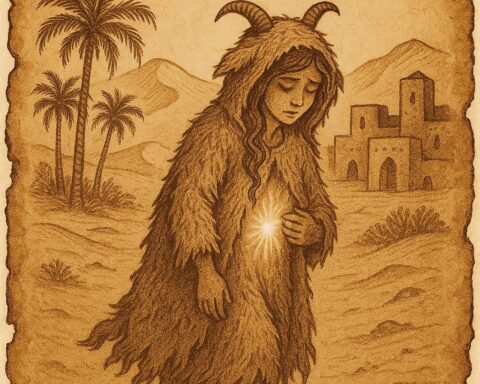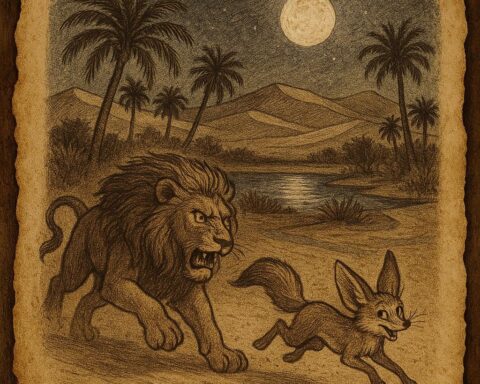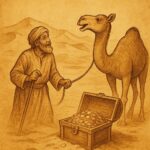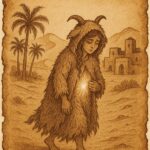In the endless dunes of the Libyan desert, where the sun scorched the sands by day and the winds howled fiercely by night, there lived a skilled hunter among the Tuareg people. He knew the desert paths, the hidden oases, and the tracks of desert animals like the back of his hand. Yet despite his skill, he often ignored the wisdom of elders and the subtle warnings of the desert. Pride and confidence sometimes blinded him to dangers that even the bravest of hunters must respect.
One morning, the village elders warned of an unusual sandstorm gathering far to the south. They said it carried a curse, one that had punished those who ventured carelessly into its path. The hunter, proud of his abilities and eager to prove himself, dismissed their words. “I have faced the desert in its fury many times,” he boasted. “I fear no wind or storm. I will hunt where I please.” With his spear, his bag of provisions, and his loyal camel, he set out toward the open sands, unaware that this journey would test his courage, patience, and humility like never before.
READ THIS: How a Herdsman’s Gratitude Led to Treasure in Fezzan
At first, the desert seemed calm. The hunter tracked gazelles across the golden dunes and marked the distant shimmer of water at a small oasis. But as the sun reached its peak, a strange haze appeared on the horizon. Sand swirled unnaturally, forming dense clouds that blotted out the sky. The wind rose with sudden force, carrying grains of sand that stung his skin and filled his eyes. The hunter realized too late that the elders’ warning was true: a cursed sandstorm had arrived.
Panic set in. The camel balked, struggling against the wind. The hunter’s tracks were quickly erased, and familiar landmarks disappeared beneath the swirling sand. His heart raced as fear replaced pride. He had ventured into the desert alone, and now he could not find his way back. With each step, the storm seemed to grow stronger, as if the desert itself were testing him for his arrogance.
In the midst of the chaos, the hunter heard faint whispers carried on the wind. At first, he thought he imagined them, but the voices became clearer. They were the voices of his ancestors, the spirits of those who had traversed the desert before him. “Respect the wisdom of your elders,” they said. “Patience and humility will guide you home.” The hunter paused, listening carefully. For the first time, he acknowledged that the desert demanded more than strength and skill, it demanded respect, understanding, and obedience to the lessons passed down through generations.
Following the whispers, he adjusted his path. He slowed his pace, let the camel guide him, and observed subtle signs in the sand and sky. Small birds seeking shelter, the bend of a palm frond, and the shadows of distant dunes all provided hints. Step by step, the hunter relied not on pride but on the guidance of the ancestral spirits. Hours passed, and the storm began to subside, revealing the familiar outline of the village in the distance. Relief flooded his heart as he realized he had survived the desert’s fury by listening and following advice.
Upon returning, the elders greeted him cautiously, sensing that he had learned a valuable lesson. The hunter bowed before them, acknowledging his error and the importance of obedience and humility. He shared his tale with the village, telling of the ancestral voices, the lessons of the sandstorm, and the dangers of pride. The young hunters listened carefully, understanding that the desert was a living teacher and that respect for its wisdom was essential for survival.
From that day onward, the hunter became known not just for his skill but also for his wisdom. He guided younger hunters, teaching them to heed warnings, observe the land, and honor ancestral knowledge. The tale of the sandstorm was told around fires on cool desert nights, a story of humility, obedience, and the unseen guidance that protects those willing to listen. Even when storms came again, the villagers no longer feared them, for they understood that respect, attentiveness, and ancestral guidance were stronger than fear itself.
The story of The Sandstorm and the Hunter spread beyond the dunes of Libya, reminding all who heard it that strength alone cannot conquer nature, and that pride must be tempered with respect. Obedience to wise counsel, humility before the forces of the world, and attentiveness to ancestral guidance ensure not only survival but a life of harmony with the land and community.
Moral Lesson
This story teaches that humility, obedience, and respect for wisdom are essential for survival. Pride and recklessness can lead to danger, but listening to guidance and honoring ancestral knowledge ensures safety and harmony.
Knowledge Check
Who was the main character in the story?
A skilled Tuareg hunter who initially ignored the warnings of his elders.What danger did the hunter face in the desert?
A cursed sandstorm that threatened his life and erased familiar landmarks.How did the hunter find his way back?
He listened to the voices of ancestral spirits and observed subtle signs in the desert.What lesson did the hunter learn from the experience?
That humility, obedience, and respect for ancestral wisdom are crucial for survival.What themes are highlighted in The Sandstorm and the Hunter?
Obedience, ancestral guidance, humility, and respect for nature.How did the hunter use his experience to help others?
He taught younger hunters to heed warnings, observe the land, and honor ancestral knowledge.
Source: Tuareg desert folktale from Libya. Recorded in H. T. Norris, Folk Literature of the Tuareg of Algeria and Libya (1972).
